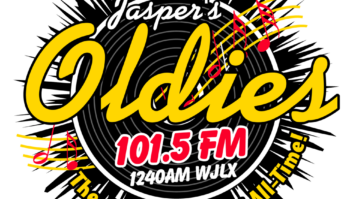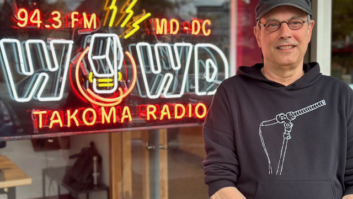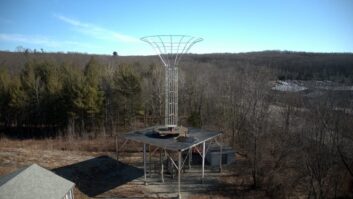‘Don’t Make Us Choose,’ Say AM Owners Seeking Relief From Deadline
WASHINGTON Should they stay on their original frequencies or keep their expanded-band locations? It’s a choice some owners feel they shouldn’t have to make.
The AM expanded band was created in 1997 with hopes of easing interference among existing stations. The FCC has allowed migrating stations to operate on dual frequencies for five years. This year is the deadline for most stations to decide which frequencies to keep and which to relinquish.
However, some of these broadcasters, faced with surrendering one of their dual licenses, are pushing a plan they say will increase ownership diversity and save spectrum at the same time. The plan would allow current owners that qualify as small businesses to keep both licenses and also allow them to sell one instead of surrendering it. Meanwhile, the petitioners have asked for a one-year extension of the deadline.
Eleven broadcasters and four other organizations have asked the FCC to waive its policy requiring the return of one of the two allotments. The issue has brought together public interest entities and broadcasters, two groups often at odds over the direction of the industry.
Why choose?
Owners of expanded-band stations want to be allowed to keep their channels permanently, or at least be allowed to profit from them by selling to small business broadcasters, something not envisioned in the original expanded-band plan.
The parties have filed a petition asking the FCC to waive its policy requiring that licensees return one of their AM allotments for cancellation and related requirements prohibiting the sale of a station during that period. This, the groups believe, would allow sale of stations to recognized small businesses for not more than 75 percent of the station’s fair market value.
They are also asking the commission to delay the effective date of its requirement to surrender one of the AM broadcast licenses for one year.
The Minority Media Telecommunications Council, Independent Spanish Broadcasters Association, National Association of Black Owned Broadcasters and Office of Communication of the United Church of Christ Inc. signed on to the effort. Clear Channel Radio, Entercom and Mid-West Family Broadcasting also are among the broadcast petitioners.
According to the parties, “The joint petitioners believe that the preservation of the licenses of the stations which would otherwise be surrendered would serve a valuable public-interest goal by increasing broadcast diversity.”
In the petition, the parties ask the FCC to allow the licensee of an expanded-band AM station to assign or transfer control of one of its stations to an entity qualifying as a small business as it applies to broadcasters in the Small Business Association’s regulations. The term “small business” refers to any entity having annual gross receipts under $6.5 million.
Any licensee already qualifying as a small business would not need to sell or return its additional station at all, according to the document.
Currently, 56 stations are operating in the expanded band (RW, March 1). The petition asks the commission to reinstate authorizations that have already been returned and to extend their surrender dates by the same one-year period. Approximately 17 AM broadcast licenses have been surrendered, according to the FCC, including some expanded-band frequencies.
The commission has said it prefers that licensees continue in the expanded band, 1605-1705 kHz, to help relieve interference along the dial. The commission expected most migrators to keep their new frequencies, which have superior coverage areas. In many cases, they operate on the expanded band at 10 kW and 1 kW night non-directional.
“Congress has repeatedly asked the FCC to find ways to promote diversity. We think this is an opportunity for the FCC to do what Congress has ordered it to do. It preserves service to the local public and promotes programming diversity and minority ownership,” said David Honig, executive director of the Minority Media Telecommunications Council.
Spanish-language formats
Honig said numerous AM broadcasters have specifically targeted programming on one of their dual frequencies to serve the needs of minorities and other niche audiences.
The petition cites examples in Madison, Wis., and Cedar Falls, Iowa, in which Spanish-language formats are now operating on frequencies that would have to be surrendered under current FCC rules.
“Similarly, in Kansas City, a local Hispanic group has entered into a programming agreement with Entercom by which it is providing Spanish-language programming,” according the petitioners.
Broadcast attorney David Oxenford, who worked on the petition on behalf of several expanded-band licensees, said he expects the FCC to act quickly on the “stay request to the status quo” while it determines the merits of the petition.
“We have had some discussions with the folks at the FCC and they are considering the requests,” Oxenford said.
The FCC could hold hearings and seek public comment regarding the petitions, or it could address the issue as a simple waiver as opposed to official rulemaking, Oxenford said.
“This would give opportunities to small business owners to get into the radio business. Several of my clients have entered programming agreements with minority operators and presumably could sell to these groups,” Oxenford said.
Honig admits the request doesn’t follow the commission’s original goals of clearing spectrum and limiting interference.
“Circumstances have changed since the FCC began drafting the procedures to expand the AM band. I don’t believe limiting interference in the AM band is a legitimate concern now if it comes at the expense of diversity,” Honig said.
According to the petition, “The benefit the commission expected to realize from a licensee’s returning its initial AM band authorization – reducing congestion and interference in the AM band – does not justify requiring expanded-band stations to return one of their authorizations when doing so would deprive the listening public of a broadcast service. The loss of any service is inconsistent with the public interest.”
FCC officials said they are working through the process but declined further comment on the petitions in May.
The improbability of public interest groups and broadcasters showing solidarity on an issue affecting the broadcast industry is not lost on the participants, Honig said.
“That’s the really unique and interesting part of this. Not since 1977 has there been a request before the commission filed as joint petitioners by public interest groups and broadcasters. That was the original request to set up the tax certificate policy,” Honig added.
Congress killed the minority tax certificate policy in 1995 for alleged mismanagement. The incentive program gave tax breaks to station or group owners that sold facilities to minorities or women.
KDNZ(AM)
One station to which petitioners refer in the filing is KDNZ(AM) in Cedar Falls, Iowa. The 500-watt station, known as Radio La Buena, began broadcasting a Spanish-language format in early 2005. KDNZ broadcasts on 1250 kHz while the group’s KCNZ(AM) airs sports on the expanded band frequency at 1650 kHz. The stations are owned by Fife Communications Co.
Station officials say Radio La Buena has connected with Cedar Falls’ growing Latino population. Officials estimate it has 25,000 listeners.
“We have found a new purpose on this frequency. There is a great need for this station now that wasn’t there five years ago,” Jeff Ryant, KDNZ station manager. “Advertisers have used the station to reach a major population. This audience has been largely ignored by other local media.”
The company must surrender one of the frequencies soon, Ryant said, without identifying the exact date. He declined to discuss the company’s specific plans for the stations. However, the filing to the FCC indicates the Spanish-language format would likely be eliminated.
“I really believe the FCC should look at what has changed since the rules were drafted in the early 1990s. The population base has changed in many communities and there is a greater need today for programming diversity,” Ryant said.
The petition cited other licenses at risk for surrender that are currently providing programming tailored to the needs of minorities in Miami, San Francisco and Seattle and Huntsville, Ala.
Not all of the broadcasters that originally expressed interest in moving to the expanded AM band followed through with their plans. After 710 broadcasters expressed interest in moving, 88 stations were ruled eligible to apply for construction permits in 1997. The commission had released a third and final allotment plan after several appeals. Of the original 88, only 66 stations elected to file construction permit applications, with the FCC issuing 65 CPs.
Several broadcasters who were granted CPs but declined to move told RW previously that they felt the benefits of a move were offset by the cost of upgrading facilities.
The vast majority of AM receivers sold since the late 1990s have included the AM expanded band. Prior to that most tuners topped out at 1600 kHz.












